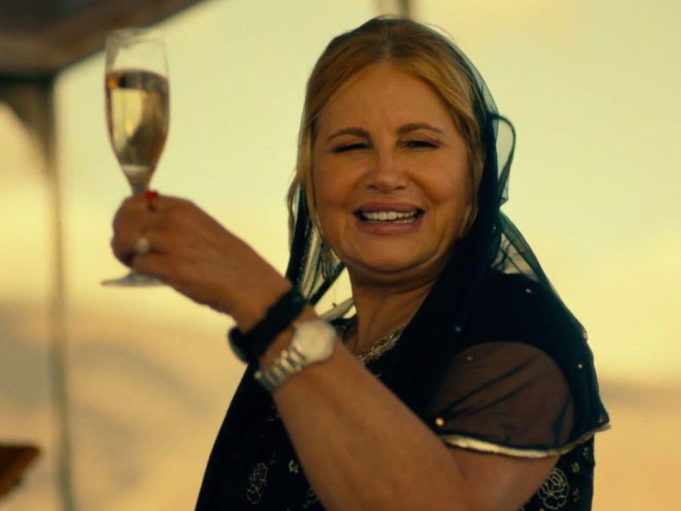After discerning audiences survived the tidal wave of pollution that was reality TV in the last couple of decades (an oil spill from Jersey Shore to ultra-wealthy sex-tape celebs and housewives), a void grew in the zeitgeist for less trashy shows, ones that satirized the “elite” instead of glamorizing their talentless schtick. Fortunately, American culture runs in cyclical waves of moderation, a balancing act not too terribly unlike politics, keeping the toxic waste at bay.
Enter: the success of, well, Succession, which exploded two years ago on HBO, as well as films like Knives Out/The Glass Onion and The Menu. HBO continues ushering in this new wave of schadenfreude whose practitioners examine the fear, confusion, and loneliness of the wealthy through the truth of art as opposed to the façade of “reality.”
The network’s most recent dark comedy just wrapped its second season after a first that addicted audiences mercilessly last year, and, much like Succession earlier, The White Lotus swept the Golden Globes and Emmys. Creator, writer, and director Mike White won the Golden Globe for Best Writing and Directing in a Limited Series, and Jennifer Coolidge won the Best Supporting Actress Golden Globe and Emmy. During his Golden Globe acceptance speech, White roasted all the elites in the seats (and watching at home), saying, “I know you all passed on this show, so this moment really is gratifying.”
White came from a background of repression as a gay man raised by a closeted gay man who was highly instrumental in the right-wing church movement of the 1980s as a speechwriter for Pat Robertson, Jerry Falwell, and Billy Graham. However, White’s father came out in the early ’90s, breaking the cycle of repression embedded in the social structures of the conservative elite and becoming a powerful influence on the filmmaker.
White’s ability to lacerate these structures is on full display from the experience of a man who grew up wealthy and saw the hypocrisy of those around him firsthand. In everything White has written, a deep respect for homosexuals, women, and oppressed populations gleams brilliantly — especially off the razor-sharp blade of his satires, with The White Lotus as arguably his best work to date.
The series revolves around a chain of White Lotus hotels, and, like the first season, this one sends up the patrons’ tacky sense of entitlement and their lust for power, juxtaposed with the scrappy plight and tenacity of the native servants. Season 2 finds the traveling elite in Sicily, and while the theme remains, it’s slightly altered. Instead of chasing money, they are consumed with the oldest currency known to humankind: sex.
From the first episode, we see all the main characters struggling with how to handle or control sexuality. The cast includes: two Sicilian sex workers/best friends/lovers who always seem to be having the most fun, using their charms to exploit the attractive one-percenters; three generations of men in a Sicilian family making the trip to reconnect with their roots only to discover the family tree is poisoned by infidelity and misogyny; a left-wing couple undergoing a power struggle with gender roles but who have an honest marriage; two right-wingers who pose as perfection but have a dishonest marriage; and then there’s Tanya.
Aside from a brief encounter with her husband (Jon Gries) in Episode 1, Jennifer Coolidge is the only returning character from last year, and her winning all the awards for this role surprised no one. She is unequivocally the best anti-hero of the year. Ripping off one-liners from her completely entitled POV and delivering them impeccably with zero self-awareness, Coolidge (whom everyone — self included — needs to stop calling “Stiffler’s mom”) is the perfect vessel for White’s comic relief, and she single-handedly keeps the show from crossing over to the dark side. Her nuanced performance somehow humanizes the obscenely rich, but it’s not so much empathy we feel as a desire to protect this endearingly authentic, albeit mind-numbingly daft, diva from herself.
You can’t help but root for super-wealthy Tanya, who, try as she might, never finds love, friendship, or any semblance of a command of her sexuality. Living in a bubble of inherited billions has robbed her of any sense of self-respect. Though her character arc does linger in and out of pathos, by the season finale, she has killed all the men trying to kill her, and yet after all of the bloodshed, her most pressing concern is whether or not her husband is cheating on her. And we love her undying, innocent hope. Tanya is the most palatable epitome of the never-ending childhood of the privileged and ultimately the pulse of the show.
The exactitude with which White inverts the hierarchical social structure of these characters through exhaustive detail and poetic mystery is addicting. The one message that comes through clearly in an otherwise cryptic story is: Attaining a joyful life is possible through art and love as opposed to power and control. In the last moments of the season finale, the residents of The White Lotus return to their dysfunctional home lives while the two sex workers — who have found a way out of the profession through art and love — bounce along joyfully arm-in-arm through the gorgeous streets of Sicily as the credits roll to “The Best Things in Life Are Free.”












